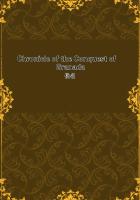I think--if one may say it with all respect--that in English society girls and women are especially prone to narrate these personal experiences as contributions to general merriment rather than the men. The English girl has a sort of traditional idea of being amusing; the English man cares less about it. He prefers facts to fancy every time, and as a rule is free from that desire to pose as a humourist which haunts the American mind. So it comes about that most of the "screamingly funny" stories are told in English society by the women. Thus the counterpart of "put me off at Buffalo" done into English would be something like this: "We were so amused the other night in the sleeping-car going to Buffalo. There was the most amusing old negro ****** the beds, a perfect scream, you know, and he kept insisting that if we wanted to get up at Buffalo we must all go to bed at nine o'clock. He positively wouldn't let us sit up--I mean to say it was killing the way he wanted to put us to bed. We all roared !"
Please note that roar at the end of the English personal anecdote.
It is the sign that indicates that the story is over. When you are assured by the narrators that all the persons present "roared" or "simply roared," then you can be quite sure that the humorous incident is closed and that laughter is in place.
Now, as a matter of fact, the scene with the darky porter may have been, when it really happened, most amusing. But not a trace of it gets over in the story. There is nothing but the bare assertion that it was "screamingly funny" or "simply killing." But the English are such an honest people that when they say this sort of thing they believe one another and they laugh.
But, after all, why should people insist on telling funny stories at all? Why not be content to buy the works of some really first-class humourist and read them aloud in proper humility of mind without trying to emulate them? Either that or talk theology.
On my own side of the Atlantic I often marvel at our extraordinary tolerance and courtesy to one another in the matter of story-telling.
I have never seen a bad story-teller thrown forcibly out of the room or even stopped and warned; we listen with the most wonderful patience to the worst of narration. The story is always without any interest except in the unknown point that will be brought in later.
But this, until it does come, is no more interesting than to-morrow's breakfast. Yet for some reason or other we permit this story-telling habit to invade and damage our whole social life. The English always criticise this and think they are absolutely right. To my mind in their social life they give the "funny story" its proper place and room and no more. That is to say--if ten people draw their chairs in to the dinner table and somebody really has just heard a story and wants to tell it, there is no reason against it. If he says, "Oh, by the way, I heard a good story to-day," it is just as if he said, "Oh, by the way, I heard a piece of news about John Smith." It is quite admissible as conversation. But he doesn't sit down to try to think, along with nine other rival thinkers, of all the stories that he had heard, and that makes all the difference.
The Scotch, by the way, resemble us in liking to tell and hear stories. But they have their own line. They like the stories to be grim, dealing in a jocose way with death and funerals. The story begins (will the reader kindly turn it into Scotch pronunciation for himself), "There was a Sandy MacDonald had died and the wife had the body all laid out for burial and dressed up very fine in his best suit," etc. Now for me that beginning is enough. To me that is not a story, but a tragedy. I am so sorry for Mrs. MacDonald that I can't think of anything else. But I think the explanation is that the Scotch are essentially such a devout people and live so closely within the shadow of death itself that they may without irreverence or pain jest where our lips would falter. Or else, perhaps they don't care a cuss whether Sandy MacDonald died or not.
Take it either way.
But I am tired of talking of our faults. Let me turn to the more pleasing task of discussing those of the English. In the first place, and as a minor matter of form, I think that English humour suffers from the tolerance afforded to the pun. For some reason English people find puns funny. We don't. Here and there, no doubt, a pun may be made that for some exceptional reason becomes a matter of genuine wit. But the great mass of the English puns that disfigure the Press every week are mere pointless verbalisms that to the American mind cause nothing but weariness.
But even worse than the use of puns is the peculiar pedantry, not to say priggishness, that haunts the English expression of humour. To make a mistake in a Latin quotation or to stick on a wrong ending to a Latin word is not really an amusing thing. To an ancient Roman, perhaps, it might be. But then we are not ancient Romans; indeed, I













